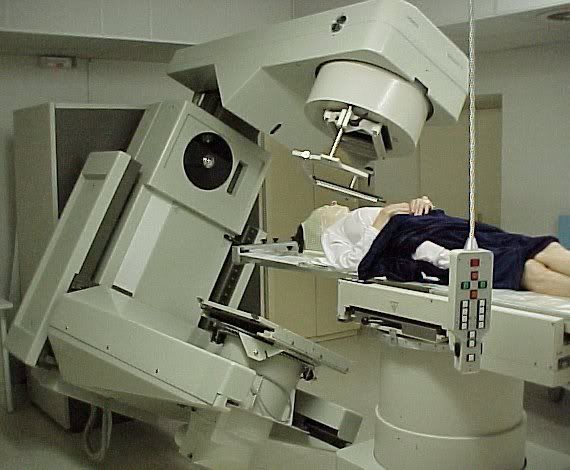Adult Weight Change and Risk of Postmenopausal Breast Cancer.
OBESITY IS ASSOCIATED WITH many chronic diseases, including cancer, and postmenopausal breast cancer in particular. Weight loss is associated with several short-term benefits, such as improvements in lipid levels, blood pressure, and blood glucose metabolism, but thus far there has been little evidence of longer-term effects on cancer risk.
Postmenopausal weight loss lowers circulating estrogens, and given that these hormones are directly related to the risk of breast cancer, weight loss is suspected to decrease risk. However, this has not been consistently shown.
Weight gain since early adulthood (eg, age 18 years) has been associated with increased postmenopausal breast cancer risk in several prospective studies, particularly among women not taking postmenopausal hormones (PMH). Among the few prospective studies of weight loss since early adulthood, null or nonsignificant inverse associations have been observed. Weight change in later years (eg, since age 50 years) has been less extensively studied, but collectively the results of prospective and case-control studies suggest that weight gain increases postmenopausal breast cancer risk. Few studies of later weight loss have been conducted, with null and nonsignificant inverse associations observed. If weight change since menopause indeed can alter risk, it would be important to advise women reaching menopause to maintain or lose weight to decrease their risk of breast cancer.
We conducted a prospective analysis within the Nurses' Health Study to examine the associations of weight gain and loss, both since age 18 years and since menopause, with postmenopausal breast cancer risk.
COMMENT
In this large, prospective cohort study of postmenopausal women, weight gains since age 18 years and since menopause were associated with increased breast cancer risk. Weight loss since menopause was associated with a decreased risk among women who never used PMH, with stronger associations among women who lost and kept off weight and among those who were heavier at menopause. When weight changes in each time period were included in the same statistical model, gains both before and after menopause were associated with increased risk.
Hormones are directly related to breast cancer risk and weight likely affects risk, at least in part, through a hormonal pathway. Higher weight at younger ages (ie, before age 18 years) decreases breast cancer risk for both premenopausal and postmenopausal women, possibly due to slower pubertal growth or a greater likelihood of irregular menstrual cycles and ovulatory infertility in adulthood. Although the ovaries produce endogenous hormones in premenopausal women, ovarian hormone production declines after menopause and adipose tissue becomes the primary estrogen source by aromatization of adrenal androgens. Compared with normal weight postmenopausal women, those with higher BMI have 2-fold higher circulating estrogens and lower sex hormone–binding globulin levels, and thus more bioavailable estrogens. Weight reduction in postmenopausal women decreases circulating estrogen levels and increases sex hormone–binding globulin levels.
The observed increased risk associated with weight gain since age 18 years among all postmenopausal women is consistent with many cohort and case-control studies. Similar to the results of other studies, we observed no association among women who had ever used PMH. Stronger associations among never or past users have been observed in prior studies, with RRs ranging from 1.52 to 2.13 in the highest categories of weight gain, similar to the 2-fold increased risk that we observed among those who never used PMH. This interaction between weight change and PMH use is likely because exogenous hormones increase circulating estrogen levels among all women, regardless of adiposity, and thus obscure the gradient due to adipose tissue alone. Thus, an association between weight change and breast cancer is most clearly observed in women who have never used PMH.
To our knowledge, this prospective study is the largest to date to examine the effect of recent weight gain among postmenopausal women. The observed significant risk associated with increasing weight gain confirms results of prior studies. Our findings of significant increased risks with gains both before and since menopause are consistent with 2 other studies with time-period analyses. Regardless of whether weight gain occurs before or after menopause, adipose tissue produces hormones after menopause; thus, women should be advised to avoid weight gain both before and after menopause to decrease their postmenopausal breast cancer risk.
We observed stronger associations with weight gain in both time periods among women who were leaner at age 18 years or at menopause. Results of a few other studies showed stronger associations among leaner women, although the interactions were not significant. However, associations did not vary across levels of BMI in a few other studies. The interaction between BMI at age 18 years and weight change likely reflects the fact that women who were lean at age 18 years do not benefit from earlier weight that is ultimately protective. The stronger association among women leaner at menopause suggests that the effect of weight gain may be more pronounced with the initial addition of adipose tissue. The plateau of the BMI and breast cancer association in higher BMI categories and the lack of association between PMH and breast cancer in obese women support this.
While null or weak, nonsignificant inverse associations with weight loss since early adulthood have been observed in most studies, significant decreased risks were observed in 3 case-control studies. In the context of these suggestive studies, we observed a significant trend of decreased breast cancer risk with weight loss since age 18 years among all postmenopausal women. Weight loss in later life has not been extensively studied, with a few studies reporting null or nonsignificant inverse associations. To our knowledge, ours is the first study to show a significant decreased risk with weight loss after menopause for women who maintained their loss. Although there were few cases in the highest weight loss category, the trend of decreasing risk with more weight lost also was statistically significant. Given the low prevalence of weight loss after menopause in this study and the modest results of and low adherence to weight loss programs, women should avoid weight gain throughout adult life rather than count on losing weight after menopause.
While weight loss was not an aim of the recently published Women's Health Initiative Dietary Modification Trial, women in the intervention group, who had a nearly significant breast cancer risk reduction, experienced significantly greater weight loss over 6 years than the control group by about 1.4 kg (estimated by the mean of group differences in weight change at years 1, 3, and 6). Although the trial was designed to assess the low-fat intervention, the 9% reduction in risk is compatible with the greater weight loss in the intervention group, as each 1.4-kg loss after menopause in our data was associated with a 4% reduction in risk among women who had never used PMH and an 8% risk reduction among those who kept weight off.
Our absolute risk and population attributable risk calculations suggest that weight gain since age 18 years and since menopause contributes substantially to the incidence of breast cancer, and many cases could be avoided by maintaining weight throughout adult life. Importantly, many breast cancer cases also could be avoided by weight loss after menopause.
This study has several strengths, including the cohort size and length of follow-up. Validated, updated weight information allowed us to calculate change in weight. Although weight reflects both lean body mass and adipose tissue, weight gain after young adulthood more likely reflects a gain in adipose tissue. With biennially adjusted weight and menopausal status, we were able to determine weight at menopause and assess postmenopausal weight change.
Biennial information also allowed for the identification of women with stable gain or loss since age 18 years and since menopause. There are also limitations, including recalled weight at age 18 years. However, the recall is likely quite accurate given its previous validation study. Although exposure was assessed by self-reported weight, reliability of self-reported anthropometric measures in this population is high and does not vary substantially by BMI. Another limitation is that relatively few women lose weight, particularly after menopause. Although we were able to assess weight loss in a few categories and stratify the analyses by PMH use and BMI, more follow-up is needed to confirm our findings and characterize the benefits more precisely. Although the homogeneity of the study population is a potential limitation, it is unlikely that the observed association between weight change and breast cancer differs substantially from the general population. However, these findings will need to be confirmed in other populations.
In summary, our results confirm the direct association between weight gain since age 18 years and postmenopausal breast cancer, particularly among women who had never used PMH. In addition, our data suggest that weight gain in adult life increases postmenopausal breast cancer risk, regardless of whether the gain occurs before or after menopause. An important finding from this study is that weight loss may reduce breast cancer risk, even if weight is not lost until after menopause. Although weight loss leads to several short-term benefits, these data provide another reason women should be advised to avoid weight gain and counseled on the potential benefit of weight loss after menopause. Although these data suggest that it is never too late to lose weight to decrease risk, given the difficulty in losing weight, the emphasis must also remain on weight maintenance throughout adult life.
Conclusions:
These data suggest that weight gain during adult life, specifically since menopause, increases the risk of breast cancer among postmenopausal women, whereas weight loss after menopause is associated with a decreased risk of breast cancer. Thus, in addition to other known benefits of healthy weight, our results provide another reason for women approaching menopause to maintain or lose weight, as appropriate.




0 Comments:
Post a Comment
<< Home